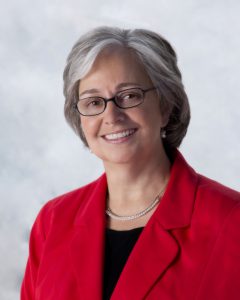TUSCALOOSA, Ala. — New and expanded graduate education programs at The University of Alabama – including doctoral programs in geography and nursing practice as well as cross-disciplinary master’s degrees, concentrations and certificates – are transforming the campus and fueling UA’s mission to take on a more innovative and influential role in American higher education.

UA’s growing graduate degree programs fulfill a mandate in the University’s Strategic Plan to create opportunities for a premier education and bolster productivity in research and scholarship, said Dr. Susan Carvalho, associate provost and dean of the Graduate School.
“The University’s strategic plan involves increasing the size of graduate programs to take advantage of our amazing facilities and also our faculty resources,” Carvalho said. “We’re looking not only at making the existing programs larger, but also designing new degree programs for the 21st century higher-education marketplace.”
Among the new programs is the doctorate program in geography, approved in February 2017 and starting this fall.
“We’ve had a master’s in geography for some time, and the research focus of the faculty has developed in such a way that it was the right time to launch a Ph.D. program that can compete with some of the best regional and national doctoral programs in that discipline,” she said.
In addition to the geography doctorate, new programs at UA include a Master of Science in human nutrition; a Master of Science in rural community health; a Master of Arts in religion in culture; graduate certificates in museum studies, archival studies and nurse-practitioner in primary care for rural populations; and a Master of Public Health in health education and promotion.
“In the last year, we’ve approved seven new master’s programs and two new doctoral programs as well as eight graduate concentrations,” she said. “In addition, we have four new graduate certificates – short sequences that can be pursued as free-standing credentials or in combination with a graduate degree program. That’s an amazing growth record in one year. It indicates the direction graduate education is moving, not only at UA but globally as well.”
UA’s efforts to add hundreds of new faculty members – a key part of the Strategic Plan — are aiding the expansion of its graduate programs, Carvalho said.
“Graduate education requires a strong research focus from the faculty, so they have to have the time to devote to mentoring these students,” she said. “At the graduate level, we train students to discover new knowledge. They’re following the theoretical and investigational knowledge of the faculty in making those discoveries themselves. So, growing the faculty will allow a greater focus on the close mentorship that guides students in advanced research methodologies.”
UA is looking at innovative ways to provide graduate education and develop new career paths for graduate students, Carvalho said. The Graduate School is working with UA’s Career Resource Center to bring employers to campus to meet graduate students. UA is also expanding ways to provide graduate education — particularly in professional programs — where students live.
“We’re looking at expanding online delivery of graduate programs for professionals with a particular eye toward graduates of our bachelor’s programs who are working now and understand the advantages of continuing their association with UA by now earning a professional master’s degree online,” she said.
The faculty are the prime drivers of these efforts to expand graduate offerings, Carvalho said.
“I am so impressed with the way the faculty and the colleges are approaching this creation of new programs, with an eye toward UA’s areas of expertise as well as the career interests of today’s students,” she said. “These new programs address our regional, national and global needs, and it’s exciting for all of us to be a part of this expansion.”
And growth in the graduate program will provide leading-edge research opportunities to undergraduates as well, she said.
“Growing the graduate presence on campus also enhances the undergraduate experience, because the graduate students have a great deal of interaction with the undergraduates in the classroom, in the labs and in many aspects of campus life.”
Contact
Taylor Bryant, director of communications, 205/348-8718, taylor.bryant@ua.edu; Richard LeComte, media relations, richard.lecomte@ua.edu, 205/348-3782
